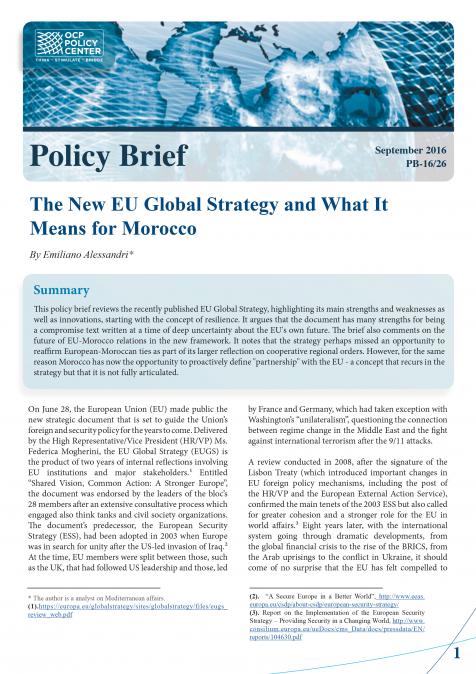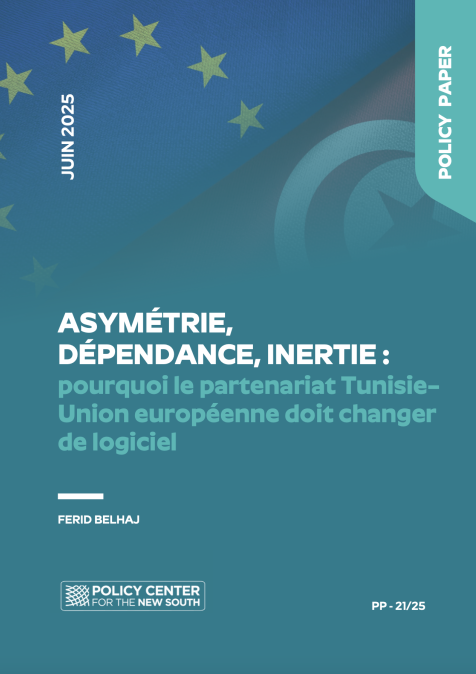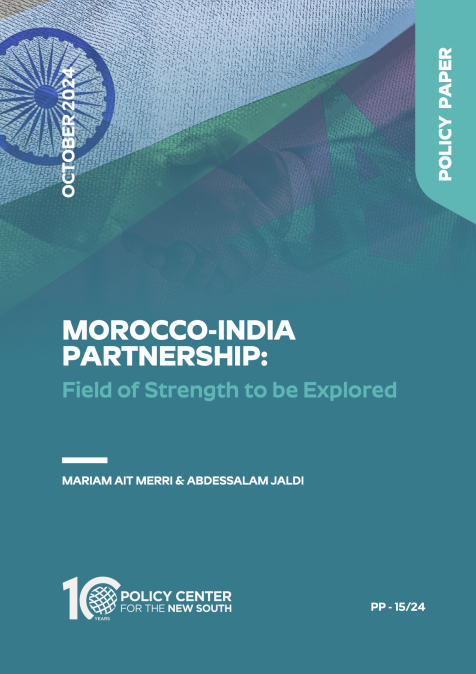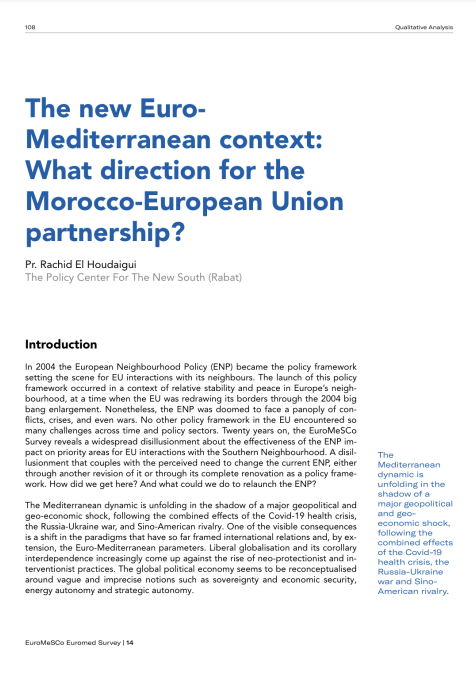Publications /
Policy Brief
This policy brief reviews the recently published EU Global Strategy, highlighting its main strengths and weaknesses as well as innovations, starting with the concept of resilience. It argues that the document has many strengths for being a compromise text written at a time of deep uncertainty about the EU's own future. The brief also comments on the future of EU-Morocco relations in the new framework. It notes that the strategy perhaps missed an opportunity to reaffirm European-Moroccan ties as part of its larger reflection on cooperative regional orders. However, for the same reason Morocco has now the opportunity to proactively define "partnership" with the EU - a concept that recurs in the strategy but that it is not fully articulated.








